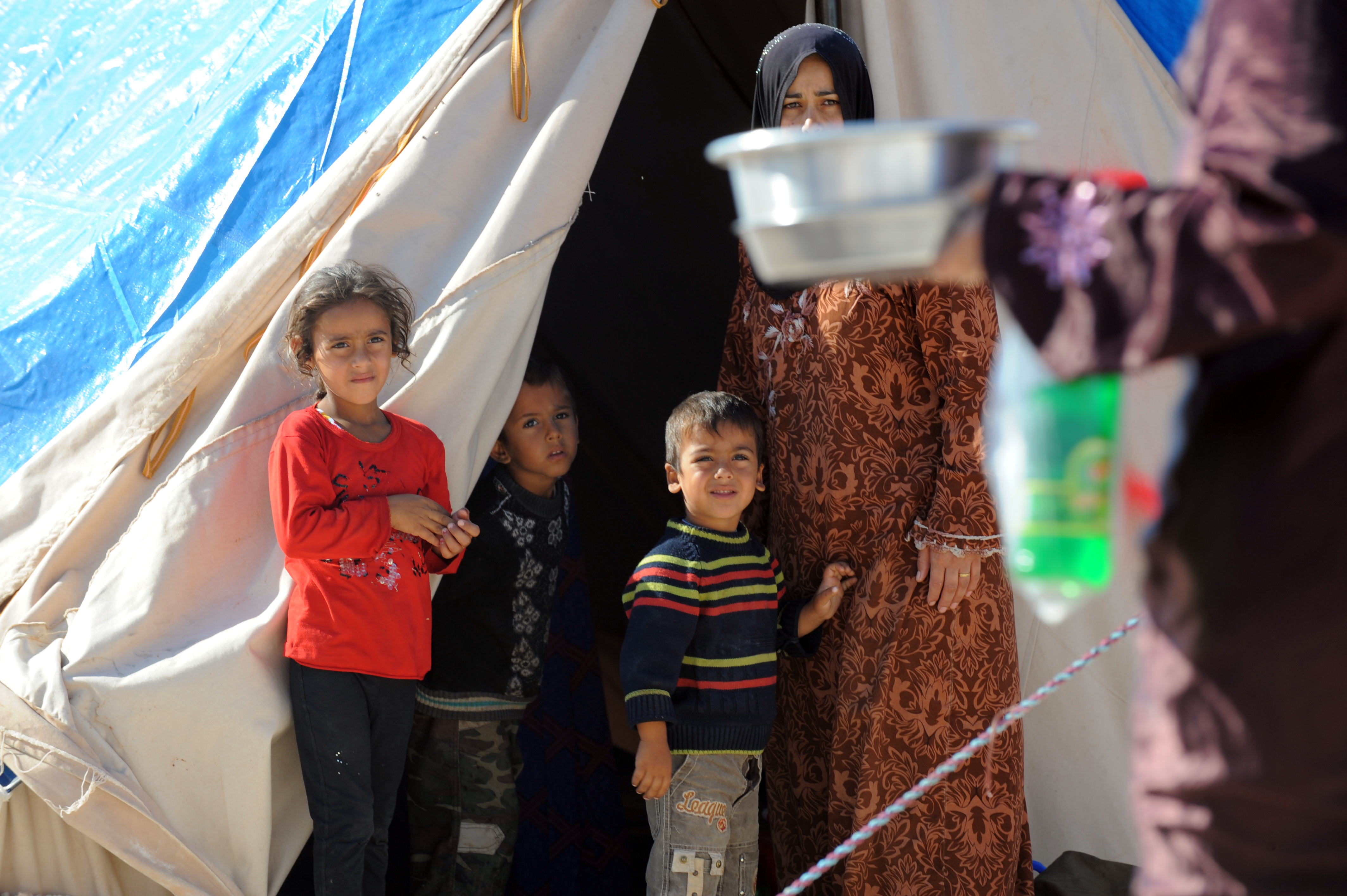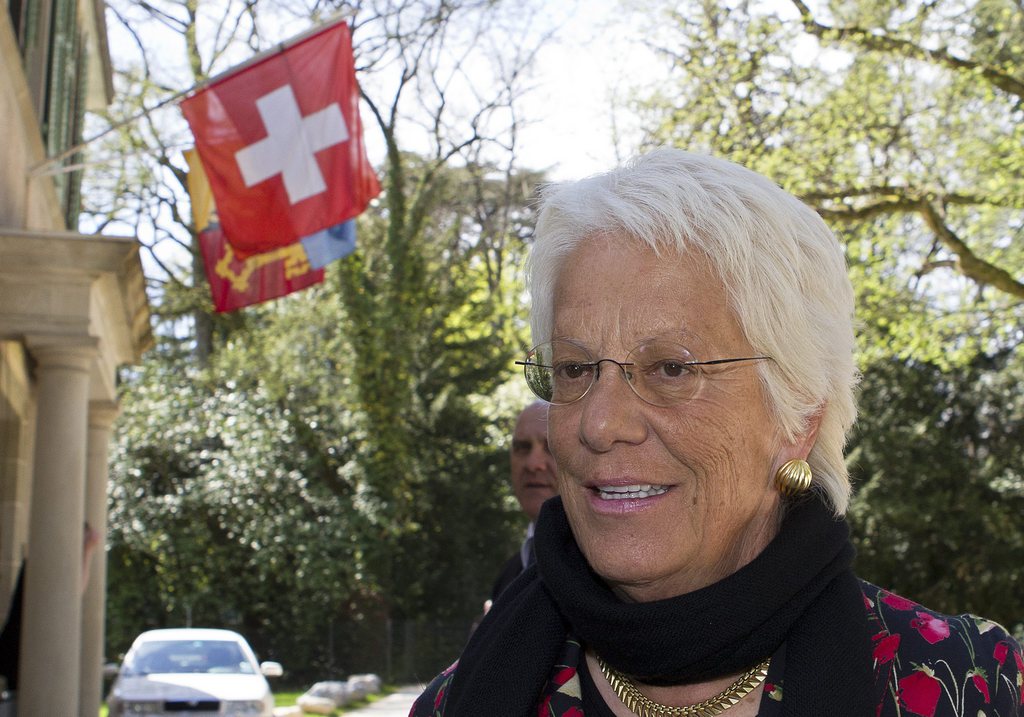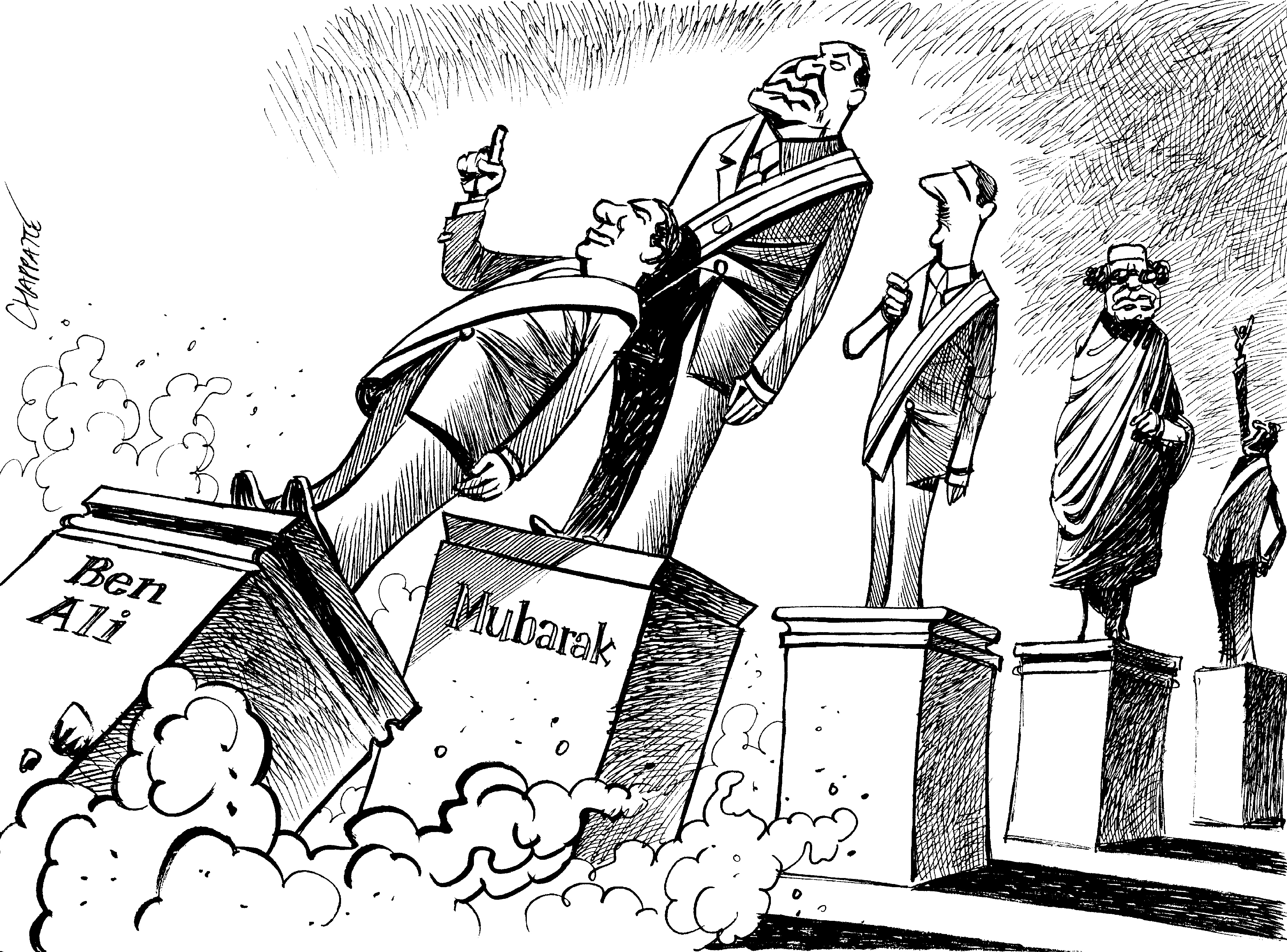Health care in Syria is “beyond catastrophic”

Hundreds of doctors are being imprisoned or killed for doing their job and tens of thousands of people are deprived of vital treatment as a result of the civil war in Syria, health workers say.
At a time when many doctors have fled or gone into hiding for fear of their lives, the Union of Syrian Medical Relief Organisations is still trying to keep secret hospitals running on the ground, according to member Tawfik Chamaa, a Syrian exile for the past 30 years who practises medicine in Geneva.
The Swiss government is helping fund one such hospital run by the Union. Chamaa tells swissinfo.ch that the hospital is operational but in an area subject to bombings.
Speaking to swissinfo.ch on the occasion of Swiss Solidarity’s fundraising drive for Syria (see link), Chamaa also notes that donations don’t always reach the needy.
swissinfo.ch: What are your expectations for this fundraising drive in Switzerland?
Tawfik Chamaa: Every effort is commendable, especially those by civil society. The only thing that I ask is that this aid arrives at its destination. A lot of money is raised for the Syrian people but doesn’t reach them. The Syrian Red Crescent shouldn’t be supported as it is controlled by the regime.
swissinfo.ch: You don’t trust the Syrian Red Crescent?
T.C.: Up until the beginning of this year, the Syrian Red Crescent was a perfectly respectable organisation and commendable for its support of all injured persons. Many rescuers were killed. But the regime now has control over this organisation, which has purged it of its honest aspects. The regime does whatever it wants with donations.
swissinfo.ch: what is the current state of health of people in Syria?
T.C.: The situation is beyond catastrophic. Many doctors and pharmacists have left the country or are hiding in their homes, for fear of being seen to be supporting the revolution. Anyone providing care in settings outside hospitals monitored by the regime is considered a terrorist, imprisoned or executed.
At the Union of Syrian Medical Relief Organisations we identified 660 doctors and rescuers who had been imprisoned and nearly 70 who had been murdered, including those from the Syrian Red Crescent because they were in zones bombed by government forces.
Syria is deprived of its 57 drug factories which are located around Damascus and Aleppo. The population has been bombed, starved and lacks oil; it also lacks medicine and treatments.
The result: 5,000 people on dialysis don’t have access to their weekly treatment. This example shows that people with chronic diseases are [actually] being given death sentences due to lack of care.
swissinfo.ch: Do you have any figures to illustrate the extent of the problem?
T.C.: On top of the 5,000 dialysis cases, there are 70,000 cancer sufferers who aren’t being treated; people who are also being condemned. The same lack of medicine exists for those suffering from diabetes, heart disease, hypertension, asthma, etc. People often do not have the money to buy drugs that are smuggled into the country.
swissinfo.ch: And yet the international community does not act.
T.C.: The silence of the international community makes it complicit in the crimes committed in Syria. Every day it finds reasons to justify its right to inaction, even though it knows that it is not a civil war between communities but a war waged by the army and the regime against its population.
This paralysis is probably explained by the various state interests in the region. But they all seem to act together to keep this regime in place.
The 16 million Syrians around the globe have continued to support the revolution.
swissinfo.ch: The Swiss government has decided to fund a hospital in Syria being established by the Swiss section of your organisation, the Union of Syrian Medical Relief Organisations. What is the status of the project?
T.C.: The treatment unit, which is in a regularly bombarded area, is operational. We are very grateful to Switzerland for this first step. And we are waiting for the next. Whatever happens, our organisation is focused on creating hospitals. And on responding to the escalation in bombings by the army which result in between 100 and 150 deaths per day. There are three to four times more injured.
So far we have managed to create 30 secret hospitals which are replaced every time they are destroyed by the regime.
The head of the Geneva-based International Committee for the Red Cross, Peter Maurer, said on November 8 that the ICRC was unable to increase its aid to keep pace with the worsening humanitarian situation in Syria, in part due to bureaucratic, military and security contingencies all of which limit its intervention.
“The fighting worsens and therefore there are more injured, more crisis situations,” he noted. Access to many regions remains impossible and information is very patchy.
Since the summer, the ICRC has managed to facilitate the arrival of aid in Syria, on November 4 bringing 14 trucks to distribute aid and managing to reach previously inaccessible areas in Homs.
When asked about the criticism of the Syrian Red Crescent’s use of donations, Maurer noted that it was the official authority appointed by the Syrian authorities. “You cannot do anything if you don’t go through the Syrian Red Crescent but our dialogue over the last two years has enabled us to better make understood that this is neutral work. It’s a daily challenge when it comes to neutrality and independence of humanitarian aid but today we can act more independently.”
Maurer also explained how the situation was complex and changeable on the ground.
“Dialogue over the past two years has allowed us to establish a situation of trust and places where we can act alone, without being accompanied by the Syrian Red Crescent.”
(Source: AFP news agency)
The Union is a humanitarian, independent, non-governmental organisation set up as a result of the conflict in Syria.
Founded in Paris in January 2012, it is made up of a dozen medical rescue organisations and hundreds of Syrian doctors based in the United States, Canada, Europe and Arab states.
It is based in Paris with offices in Turkey, Lebanon and Jordan.
(Translated by Jessica Dacey)

In compliance with the JTI standards
More: SWI swissinfo.ch certified by the Journalism Trust Initiative



You can find an overview of ongoing debates with our journalists here. Please join us!
If you want to start a conversation about a topic raised in this article or want to report factual errors, email us at english@swissinfo.ch.